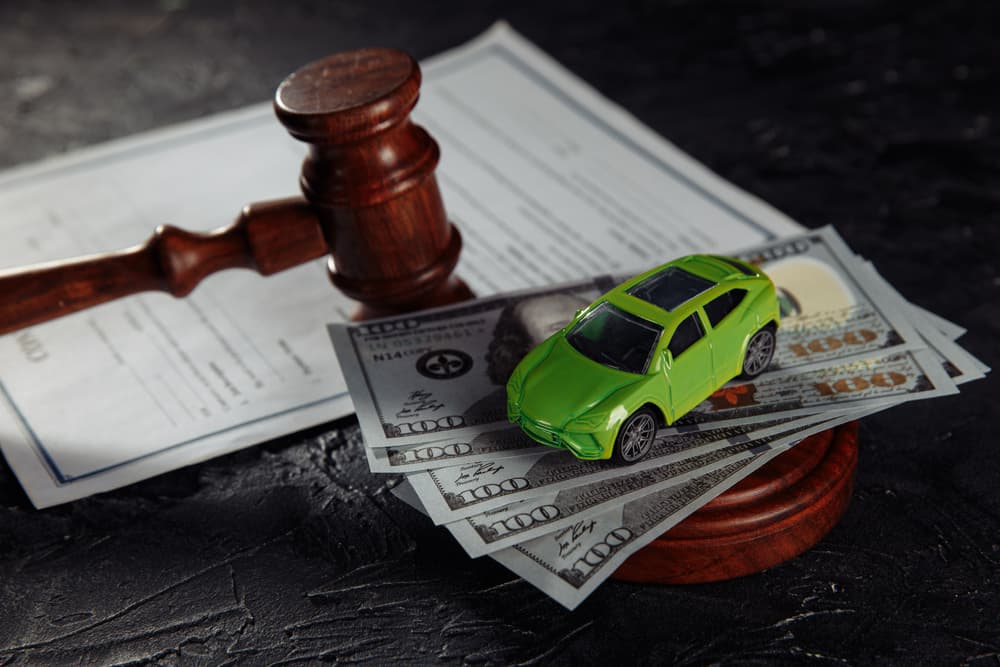Quick Answer
How to Get a Police Report for a Car Accident
Car accidents are never simple incidents. From medical treatment to court cases, there are many steps behind settling an accident’s aftermath. However, there’s one crucial step that many drivers may not know—filing a police report.
For car accidents, a police report acts as an impartial record of the incident. These reports include every bit of important information on the car accident, from location to camera footage. Down the line, a police report can help you resolve any car accident settlements, lawsuits, or insurance claims—i.e., possible financial compensation for your losses.
If you’re in a car crash, it’s always best to file a police report (and may even be legally required). Dive into our guide on how to get a police report for a car accident and if you should employ the help of lawyer for car accident.
#1 Contact the Police
The first step to getting a police report? Calling the police.
All police reports start with a law enforcement officer arriving at the car accident scene. After receiving medical attention and reaching a safe location, you should call 911 or a non-emergency law enforcement phone line. However, there’s no need to call the police if an officer is already present at the accident.
Depending on the state, you may be required to file a police report by law. If your car accident falls under these circumstances, you likely need to call the police immediately:
- An injury or death occurs
- A driver is intoxicated
- Vehicle or property damage exceeds $1000
- Vehicles are left unmoveable on the road
- A driver has no insurance
- A driver flees the scene
While you may be legally required to call a law enforcement officer, you are not legally required to talk to them. To protect yourself from any legal bearings, limit your conversation to the direct facts of the case—do not admit fault or blame.
Above all, do not abandon the accident. Drivers or involved parties that flee the accident can be charged with a crime. Until a law enforcement officer arrives, stay put.
#2 Request a Police Report
Most law enforcement officers immediately create a police report when called to an accident site. However, you can always request one if the accident fails to meet any legal reporting requirements.
While every car accident is different, all police reports require the same general information. Put on your detective hat and try to collect as many of these accident details as possible:
- Time and date
- Location
- Conditions during the accident (weather, traffic, road signs, etc.)
- Name, contact, and ID information of any drivers
- Name, contact, and ID information of any witnesses
- Photos or video footage of the scene
- Vehicle and/or property damage description
- Injuries or deaths
- A diagram or drawing of the accident
#3 File the Report Paperwork (And Get a Copy)
Got all of your accident information? Now it’s time to create an actual car accident report.
A law enforcement officer will assist you in creating a report at the accident scene—but don’t stay still until then. Collect as much information as possible before, during, and after the law enforcement officer arrives.
The following can boost your police report and provide you with a personal record of the incident:
- Collect all information listed under the police report requirements
- Take pictures or videos of the accident scene and any damage
- Record any witness statements
- If the other party admits fault, ask them to make a signed statement or record a statement on your phone
- Search for any video surveillance or security cameras nearby and inquire their owners for video footage immediately
- Ask for the officer’s name, badge number, and given police report number, if possible. This will help you keep tabs on your car accident report’s progress in the future.
If the officer failed to take note of any injuries or damages, make sure to add these to your incident report in the future.
#4 Review Your Report
A police report is the basis for many proceedings after a car accident—but it’s not a legal ruling. Your auto accident report is simply a tool for claiming any damages (financial compensation for any losses) or determining liability over the accident, especially for insurance claims.
That means you’ll need a fresh copy of your police report to settle any discrepancies.
Police reports should be available no less than 30 days after an accident.3 Once received, review the report for any mistakes or missing information. If you notice discrepancies, contact law enforcement to request a correction. Reviewing your report can also determine if and when to get an attorney for a car accident in the case of serious damages or injuries.
Navigate the Post-Accident Road
No matter how small, all car accidents are serious. Even if it seems excessive, it’s never foolish to file a police accident report. In the future, it could save you from significant stress over liability and insurance claims.
To navigate post-accident procedures, head to Mighty's Lawyer for Car Accident Directory to find a trusted attorney in your area today.
Sources
- Enjuris. State-by-State Laws & Requirements for Reporting a Car Accident. https://www.enjuris.com/car-accident/accident-reporting-requirements/
- Forbes. Car Accident Police Report: When & How To Get A Report. https://www.forbes.com/advisor/legal/auto-accident/car-accident-police-report/
- Cohen and Jaffe. How to Obtain a Car Accident Police Report in New York. https://www.cohenjaffe.com/faqs/how-to-obtain-a-car-accident-police-report-ny/
Know Your Claim’s Worth—and Settle It
Serious injury or no injury at all, move your case forward instantly from your phone.
Thank you for submitting your information.

About the author
Luke is a warm-hearted and highly skilled legal operations expert with an impressive 8-year track record in the personal injury field. As the Client Operations Lead at Mighty, he is dedicated to providing exceptional support, transparent communication, and genuine empathy to clients during their challenging journey. His expertise in streamlining processes and implementing cutting-edge technology makes him an indispensable ally for clients, case managers, and attorneys in their pursuit of justice.






